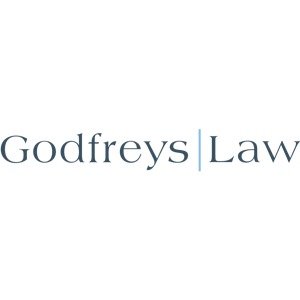Best Hiring & Firing Lawyers in Christchurch
Share your needs with us, get contacted by law firms.
Free. Takes 2 min.
List of the best lawyers in Christchurch, New Zealand
About Hiring & Firing Law in Christchurch, New Zealand
The employment law in New Zealand, including Christchurch, is designed to support and safeguard both employers and employees in matters of hiring and firing. The law covers a range of aspects such as equal opportunity hiring, creating secure work environments, and fair treatment during dismissal or termination. Employee's rights should be respected at all times, and any violations can be considered unlawful and can lead to severe penalties.
Why You May Need a Lawyer
Employers may require legal help in creating sturdy employment contracts, establishing company policies, ensuring compliance with labor laws, or dealing with potentially sensitive termination cases. Employees, on the other hand, may need legal advice when they believe they've been wrongfully terminated, faced discrimination during hiring, or have disputes over employment contracts. In these situations, professional legal advice can protect your rights, and offering clarity for most optimal next steps.
Local Laws Overview
Key aspects of the local laws on hiring and firing in Christchurch involve the Employment Relations Act 2000, which covers unjustifiable dismissal, good faith, and dealing with unions. The Human Rights Act 1993 also impacts hiring by prohibiting discrimination based on a multitude of factors such as race, gender, disability, and age, among others. Employers must also comply with the Privacy Act 2020, ensuring that employee data is collected and handled appropriately.
Frequently Asked Questions
What constitutes wrongful dismissal?
Wrongful dismissal refers to terminations that violate the terms of the contract or employment laws. For example, firing an employee for unlawful reasons such as discrimination or without notice can be a wrongful dismissal.
What is fair and unfair in terms of hiring?
Fair hiring refers to selecting an applicant based on their skills, qualifications, and suitability for the role. It's unfair to reject applicants based on their age, race, gender, marital status, religious beliefs, or other protected categories.
What is 'good faith' in the employment context?
'Good faith' means that both parties in the employment relationship must treat each other in an honest, fair, and trustworthy manner. An employer must always act in 'good faith' while dealing with their employees.
What is constructive dismissal?
Constructive dismissal happens when an employer creates a hostile or unbearable work environment, forcing the employee to resign. This is also considered unlawful under New Zealand law.
What legal remedies are available for wrongful dismissal?
Legal remedies may include financial compensation for loss of wages, non-financial damages for hurt and humiliation, reinstatement of employment, or recommendations for action towards the employer.
Additional Resources
The Ministry of Business, Innovation and Employment, and the New Zealand Law Society can provide additional resources and advice on employment law matters. The Employment Relations Authority is the body that resolves any employment disputes.
Next Steps
If you believe you need legal assistance in the area of hiring and firing, the first step is to seek advice from a professional employment lawyer. They can guide you on potential legal remedies, how to proceed with formal complaints, or assist employers in ensuring compliance with local laws.
Lawzana helps you find the best lawyers and law firms in Christchurch through a curated and pre-screened list of qualified legal professionals. Our platform offers rankings and detailed profiles of attorneys and law firms, allowing you to compare based on practice areas, including Hiring & Firing, experience, and client feedback.
Each profile includes a description of the firm's areas of practice, client reviews, team members and partners, year of establishment, spoken languages, office locations, contact information, social media presence, and any published articles or resources. Most firms on our platform speak English and are experienced in both local and international legal matters.
Get a quote from top-rated law firms in Christchurch, New Zealand — quickly, securely, and without unnecessary hassle.
Disclaimer:
The information provided on this page is for general informational purposes only and does not constitute legal advice. While we strive to ensure the accuracy and relevance of the content, legal information may change over time, and interpretations of the law can vary. You should always consult with a qualified legal professional for advice specific to your situation.
We disclaim all liability for actions taken or not taken based on the content of this page. If you believe any information is incorrect or outdated, please contact us, and we will review and update it where appropriate.
















